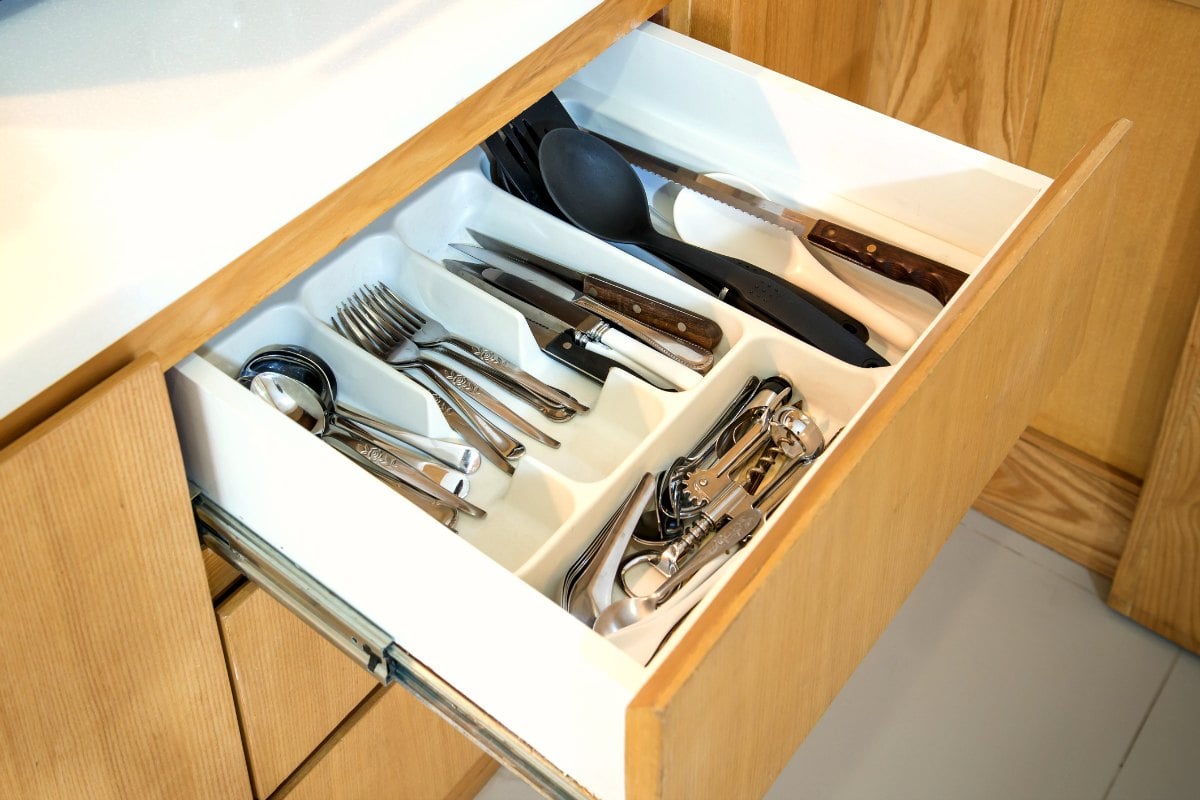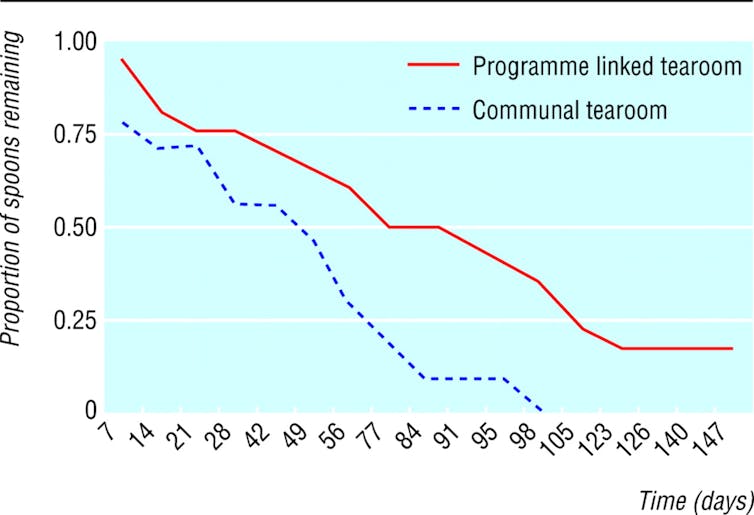
Once upon a time, a group of disheartened scientists found their tearoom bereft of teaspoons. Despite dispatching a research assistant to go purchase more – so sugar could be stirred and coffee dispensed – the newly purchased teaspoons disappeared within a few short months.
Exasperated by the disappearance, the scientists decided they would measure the phenomenon. Do the teaspoons really disappear over time?
The answer was a resounding yes: spoons in research institute tearooms seem to have legs. While good fun, the research is a good example of a study design referred to as “longitudinal”.
What is a longitudinal study?
A longitudinal study uses continuous or repeated measures to follow particular individuals – in this case, teaspoons – over prolonged periods of time.
The studies are generally observational in nature: the scientists simply watch and collect data over time. Typically, no external influence is applied during the course of the study.
Beyond just working out where all the teaspoons have gone, this study type is also useful for evaluating the relationship between risk factors and the development of disease (for example, heart disease), and the outcomes of treatments over different lengths of time.
Tracking teaspoons
In this study, the main questions posed by our researchers were to determine the overall rate of loss of teaspoons, and to work out how long it took for teaspoons to go missing.
They purchased 70 teaspoons (16 of which were of higher quality), each one discretely numbered and then distributed throughout the institute. Counts of the teaspoons were carried out weekly for two months, then fortnightly for a further three months. Desktops and other immediately visible surfaces were also scanned for “misplaced” spoons.

Top Comments
There is also the other conundrum that exists regarding teaspoons.Teaspoons have been disappearing for quite a long time.It has been noted that when said teaspoons reappear they seem to have grown in capacity.Seasoned instant coffee drinkers have recorded that their coffee seems stronger after using the newer and recently returned teaspoons
Wow, this was actually a study that someone did? Tackling the big issues!
For the record, I always keep 1 teaspoon in my desk drawer. That way I know exactly where it's been, that it's clean.